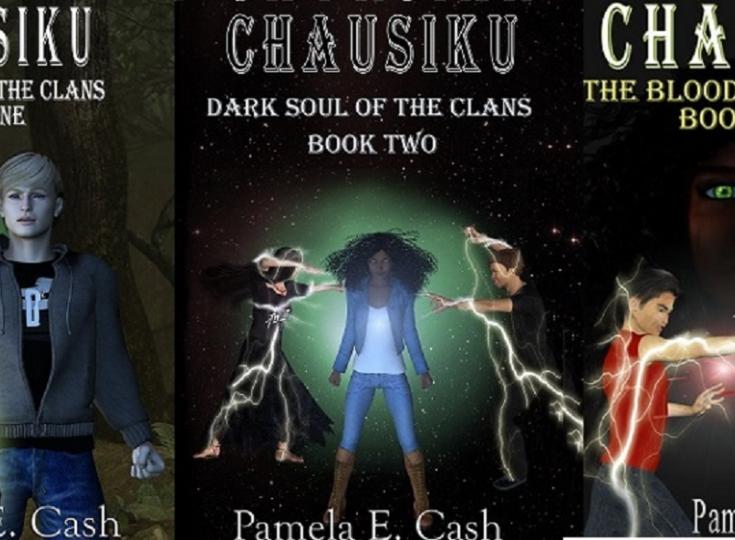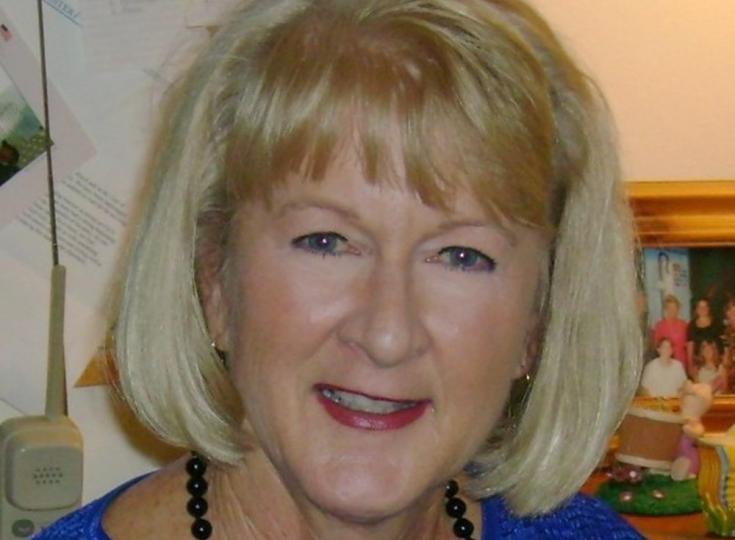Jennifer Foehner Wells - Sci-Fi That Captures The Imagination
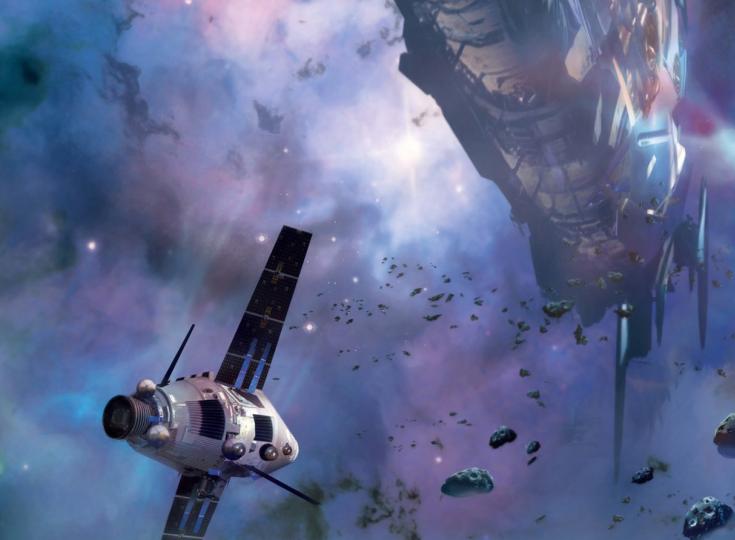
When Jennifer Foehner Wells' debut novel took off and reached Amazon’s SciFi bestseller lists within weeks after it was first published, she couldn't believe her eyes. Today, the successful author is supporting her family with her writing, with her only regret being that she didn't start pursuing her dream earlier. As our author of the day, Wells talks to us about Fluency, why she enjoys sci-fi and what she has in common with Jane, her main character in the book.
Please give us a short introduction to Fluency
Fluency is about a team of astronauts sent to investigate an alien ship that has been drifting in the asteroid belt for decades. They had thought the ship was derelict but when they arrive, the team’s linguist Jane Holloway is contacted telepathically by a mysterious alien presence. As the mission falls into a dangerously chaotic situation, Jane has to figure out what the alien wants from her in order to protect her teammates.
What inspired you to write Fluency?
I really enjoy both near-future science fiction and first contact science fiction like The Martian, Stargate, and Independence Day. I wanted to write something that would make the reader feel like it could happen to them.
Why did you make your protagonist a linguist?
I feel certain that this kind of mission, should it ever occur, would most definitely include either a linguist or an anthropologist or both. Someone has to decipher the alien language that would be there and parse the cultural norms. I needed a character who had been exposed to a lot of languages and who picked them up very quickly. Jane’s background, being raised by parents who moved frequently around the globe, working as trekking guides in remote places, as well as her profession, was the obvious choice.
Why sci-fi? What is it about the genre that fascinates you?
The possibilities. I’m fascinated by diversity and culture here on Earth. Extrapolating that out, combining different ideas to create new cultures is fun for me. From a very young age I was drawn to science fiction in all of its forms—books, films, and television. My first experiences were watching movies like Star Wars with my family and Star Trek on television, but the ones that really resonated with me were reading Bradbury’s shorts and John Wynham’s The Day of the Triffids.
What are your favorite sci-fi movies of all time?
In no particular order: Alien, Star Wars, Blade Runner, Avengers, Guardians of the Galaxy, District 9, Moon, Independence Day, Ex Machina, Gravity, Equilibrium.
Fluency was your debut novel and yet pushed you into bestselling author status within two months after its release. What was the experience like?
It was surreal! I expected to work for years to make any headway on my career, if I ever did. The early success took me completely by surprise. I was nervous on launch day, but my expectations were low. I remember refreshing my KDP sales page every half hour and just shrieking in disbelief. The entire family and I were in awe. And then it just kept going, building, day after day. Within weeks Fluency was on several of Amazon’s SciFi bestseller lists. It felt like a dream. Two years later I’m still pinching myself. I feel very fortunate. I had told myself for years that I would never make it as an author. It turns out that the only thing holding me back was me.
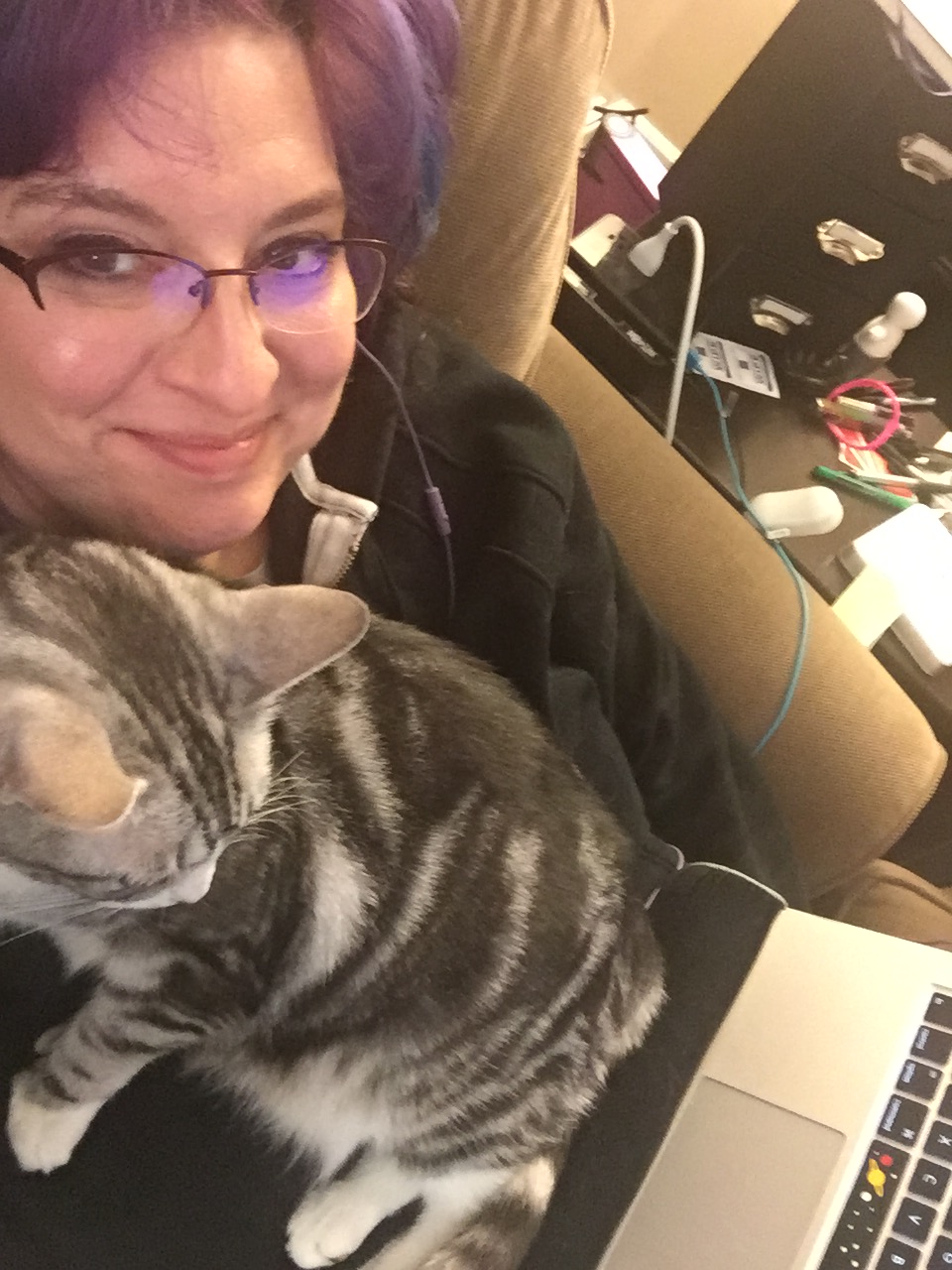
Do you think that there are things out in space that NASA isn't telling us about?
I think that there are probably anomalies that they don’t understand that they aren’t mentioning because they don’t know what the significance is yet. We don’t have powerful enough technology yet to explain some of these things yet. The announcement last October of the discovery of KIC 8462852 and the more recent discovery of EPIC 204278916—both with significant periodic dimming of their light—are perfect examples of that. They create the speculation of a possible Dyson Sphere in use, but of course we have no way of knowing what is actually happening out there. I suspect there are many other such anomalies we haven’t been told about yet.
Your book touches on the intricacies of human (and alien) relationships. Why did you pick this approach?
This is simply what I prefer in my own reading, so I naturally gravitate toward those kinds of stories in my own writing. I love character-driven stories. I like to see myself in the character I’m reading about. Real people struggle with interpersonal relationships and seeing that reality in my fiction makes it feel more realistic to me.
Did you plot out Fluency before you started writing or did some of the twists just "happen" as you went along?
I always plot out a book before I start writing, but I never seem to be able to stick to those original plans. I almost always think of better options as I’m writing. Being in drafting mode opens me up to a more creative frame of mind and new possibilities come to me that I never considered while creating the outline, which I find to be a far more analytical process.
Besides writing, what other cool skills do you have?
I’m a very proficient knitter, quilter and rugmaker (I used to design traditional hand-hooked rugs), though I don’t indulge in those hobbies as much as I used to. Those hobbies led to learning to dye fabric and yarn. I make soap from lye and fats/oils. I’m also a good home cook and baker. I dabble in other creative pastimes like origami, which I do with my kids, and a little bit of painting. My whole life I’ve been searching for my creative home and when I finally returned to writing after a long absence, I found the thing I’d been looking for.
Tell us a bit about your writing habits. Your favorite spot? How do you make time to write?
I’m lucky enough to be supporting my family through my writing, so I write when my kids are in school and after they go to bed. I have two favorite spots. One is right in the living room, on the sofa, with my laptop, but sometimes when my boys are rowdy I disappear into my office, especially on weekends, and shut the door. There I have a comfy chair and ottoman where I work.
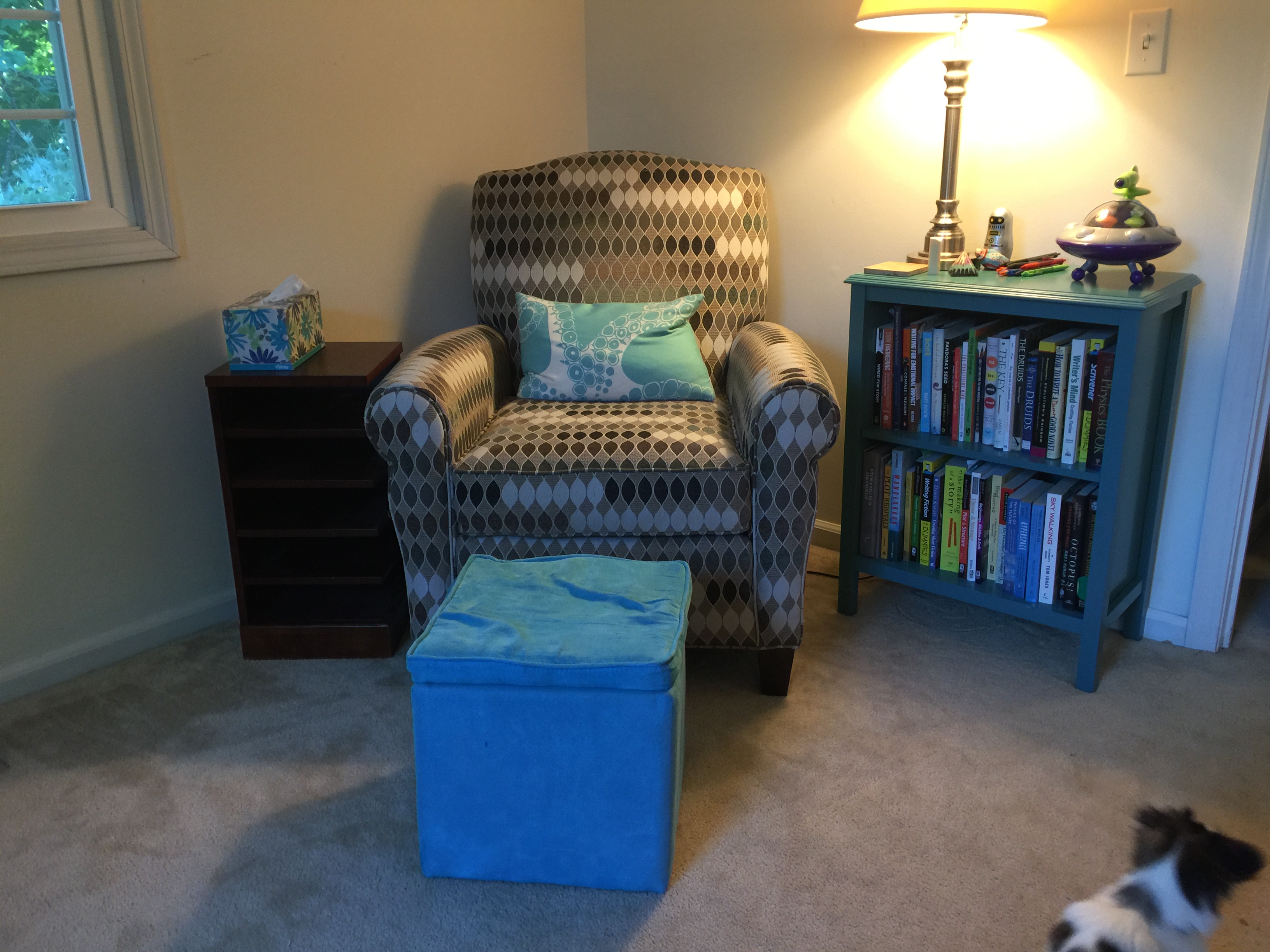
Jane is a strong, professional woman, yet she still struggles a lot with uncertainty and self-doubt. Why did you write her character that way?
I wrote Jane this way because I feel that it’s the most realistic way to define a character. I myself am plagued with self-doubt, especially when under stress, and I believe most of us are. I wanted the reader to be able to identify with Jane, to see themselves in her shoes and I don’t think they’d be able to do that if she was 100% confident. Self-doubt is something we all understand—and we’d all like to believe that despite those feelings we would be able to rise above when the situation called for it—persistence and courage in the face of those fears are what make a true hero, in my book.
How does the next book in the series tie in with Fluency?
In Remanence we see Jane’s adventure continue on Sectilius where she comes face to face with the people who created the ship that was explored in Fluency. They find that planet struggling in the throes of recovery after an apocalyptic event. The sectilians, who were once more technologically advanced than us, are now in a preindustrial state and trying to reestablish their culture. In order to complete her mission, Jane has to solve a decades-old mystery while navigating the politics of an alien world.
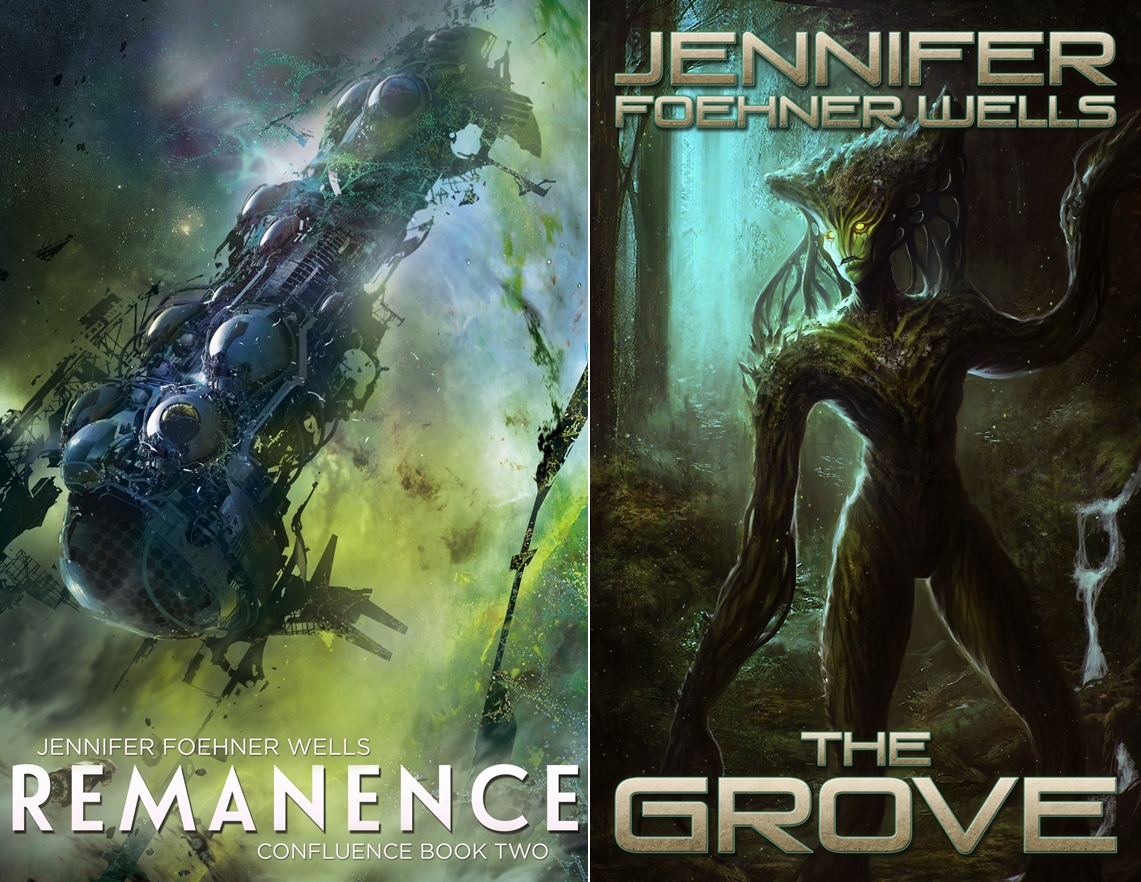
What are you working on right now?
I am finishing up a novel called The Druid Gene which is in the same universe as Fluency and Remanence, but with new characters and new challenges. It’s with my line editor now and will be published in early October.
Where can our readers discover more of your work or interact with you?
All of my work is available on Amazon. Audio books are available on iTunes and Audible as well. I use Twitter as my primary social media to interact with my readers. My Twitter handle is @Jenthulhu. I’m also active on Facebook.

